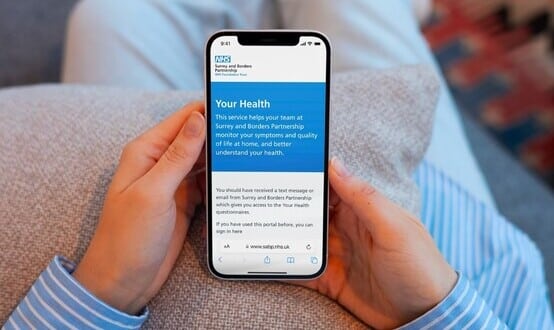Digital Health Coffee Time Briefing ☕
- 17 January 2024

Your morning summary of digital health news, information and events to know about if you want to be “in the know”.
👇 News
🚗 A woman from Northampton who set up a car meet which promotes positive mental health says the motoring community has helped “save my life” after she became suicidal. Lani Tebbutt, who started Breaking Silence last year, has teamed up with mental health charity St Andrew’s Healthcare and another major car group Petrolheadonism to host an event which will encourage young men to open up about their feelings and struggles.
💉 AI has potential to counter vaccine hesitancy while building trust in vaccines, but it must be deployed ethically and responsibly, argue Heidi Larson and Leesa Lin in the BMJ. Given the sluggish pace of traditional scientific approaches, AI, particularly generative AI, has emerged as a significant opportunity to tackle complex health challenges, including those in public health. Against this backdrop, interest has focused on whether AI has a role in bolstering public trust in vaccines and helping to minimise vaccine hesitancy, which the World Health Organization named as one of the top 10 global health threats.
📈 An AI system trained to conduct medical interviews matched, or even surpassed, human doctors’ performance at conversing with simulated patients and listing possible diagnoses on the basis of the patients’ medical history. The chatbot, which is based on a large language model (LLM) developed by Google, was more accurate than board-certified primary-care physicians in diagnosing respiratory and cardiovascular conditions, among others. Compared with human doctors, it managed to acquire a similar amount of information during medical interviews and ranked higher on empathy.
🤝 A provider of PACS systems has partnered with an AI developer that specialises in the interpretation of ultrasound images in an effort to improve the way sonogram data is managed by radiology departments. iCardio.ai highlights clinically relevant and critical findings on ultrasound images for the review of radiologists, and its technology will now be added to the UltraLinQ image viewer and reporting platform. The integration will allow operators of the PACS system to leverage the benefits of the AI directly from the cloud, without the need for additional in-house technology.
🧠 Cognetivity Neurosciences, a technology company that has created a unique AI powered brain health screening and monitoring platform for use in medical, commercial and consumer environments, has completed registration allowing it to market its CognICATM cognitive assessment system commercially for clinical use in Australia. CognICA is a five-minute, computerised cognitive assessment, incorporating AI delivered via Apple iPad devices. It offers numerous benefits to clinicians and patients, particularly in comparison to traditional, pen-and-paper-based tests. These include high sensitivity to early-stage cognitive impairment which allows reliable detection of patients at the early stages of diseases such as Alzheimer’s and reliable monitoring of patient progress. CognICA is also capable of supporting remote, self-administered testing at scale and is geared towards seamless integration with existing electronic health record systems.
❓ Did you know that?
One in three nurses and social carers across the UK have had to suffer the consequences of skipping meals just to be able to pay for their own training to keep their skills up-to-date. The research conducted by FuturU found that that 42% of nurses and care workers in the UK are paying for training out of their own pockets, with the average self-funder spending nearly a fifth of their annual salary on training. To put this into perspective – this is equivalent to around a staggering £5,660 which is nearly, on average, half a year’s rent.
📖 What we’re reading
The evolution in healthcare technology has led to significant improvements in patient care and clinician efficiency, not least of which is the advent of EHRs. However, the measurement of EHR success is often contentious, with many arguing that the current criteria do not sufficiently account for the impact on clinician quality of life and the ability to deliver high-value care. An article on Medriva explores the need for a new way to measure EHR success, the role of AI in transforming the healthcare landscape, and the evolving quality measures in healthcare.
🚨 This week’s events
18 January 10:30am-12.30pm, techUK – Crown Commercial Service Digital Capability for Health 2 Supplier Engagement Event



